




Related bibliographies:
Reptiles
 Snakes Snakes
 Colubridae Colubridae
Africa






































































































































































































































































































































| |

Bibliography of the genus
Dispholidus (Boomslangs)

(Reptilia: Serpentes: Colubridae)
Note:
In order to limit redundancy, relevant literature indexed in the related bibliographies in the left column may not have been included in this page. For a comprehensive search of literature, these bibliographies should therefore also be consulted.
Dispholidus typus
 |
Bassil, S. 2001. Getting peckish. Africa Birds & Birding 6(1): 14-15.
Bates, M.F.; Nuttall, R. 2013. Natural history notes: Dispholidus typus viridis (A. Smith, 1828). Diet. African Herp News 59: 33-35.
Blake, D.K. 1960. Venom extraction from a back-fanged snake (Dispholidus typus). Journal of the Herpetological Association of Rhodesia 13(1): 7-8.
Bouillon, A. 1965. Serpentes danger! Zooleo 2: 1-76.
Bourgeois, M. 1964. Les reptiles de la Kasapa (Elisábethville). Publ. Univ. Elisábethville 7: 65-89.
Boycott, R.C.; Morgan, D.R. 1990. Observations on reproduction in southern African boomslang, Dispholidus typus. Journal of the Herpetological Association of Africa 38: 51-52.
Branch, W.R.; Hanekom, N. 1987. The herpetofauna of the Tsitsikamma Coastal and Forest National Parks. Koedoe 30: 49-60.
Branch, W.R.; Jackson, A. 2016. Natural History Notes. Colubridae, Dispholidus typus (Smith, 1828), Boomslang. Melanistic coloration. African Herp News 63: 9-11.
Broadley, D.G. 1957. Fatalities from bites of Dispholidus and Thelotornis and a personal case history. Journal of the Herpetological Association of Rhodesia 1: 5.
Broadley, D.G. 1960. Case history of a boomslang (Dispholidus typus) bite. Journal of the Herpetological Association of Rhodesia 11: 7-8.
Broadley, D.G. 1960. The boomslang (Dispholidus typus) in Central Africa. Journal of the Herpetological Association of Rhodesia 9(1): 14-15.
Broadley, D.G. 1962. Snakes of Southern Rhodesia. 12. The Common Boomslang (Dispholidus typus typus). African Wild Life 16: 109-111.
Broadley, D.G. 1962. The common Boomslang (Dispholidus typus typus). African Wild Life 16: 109-111.
Broadley, D.G. 1969. Maximum length attained by the boomslang (Dispholidus typus). Journal of the Herpetological Association of Africa 5(1): 8.
Broadley, D.G.; Wallach, V. 2002. Review of the Dispholidini, with the description of a new genus and species from Tanzania (Serpentes, Colubridae). Bulletin of the Natural History Museum Zoology Series 68(2): 57-74.
Brooke, R.K. 1992. The date of publication of certain names of reptiles and amphibians proposed by Andrew Smith. Journal of the Herpetological Association of Africa 41(1): 9.
Comrie, J. 1997. The bite of the boomslang. Herptile 22(2): 52-53.
Egan, V. 2006. Dispholidus typus typus (A. Smith, 1829). African Treesnake/boomslang. Size. African Herp News 41: 18-19.
Eimermacher, T.G. 2012. Phylogenetic systematics of Dispholidine colubrids (Serpentes: Colubridae). Ph.D. thesis (unpubl.), University of Texas at Arlington, Arlington, Texas, USA. 109 pp.
FitzSimons, F.W. 1909. On the toxic action of the bite of the boomslang or South African tree-snake (Dispholidus typus). Annals and Magazine of Natural History (London) 3: 271-278.
FitzSimons, V. 1956. Reptiles and Amphibians of the Wonderboom Nature Reserve. Fauna and Flora (Pretoria) 7: 89-106.
FitzSimons, V.; Brain, C.K. 1958. A short account of the reptiles of the Kalahari Gemsbok National Park. Koedoe 1: 99-104.
Frade, F.; Manacas, S. 1955. Serpentes do Ultramar portugues. Garcia de Orta Sér. Zool. (Lisboa) 3(4): 547-553.
Gradwell, J.; Tyner, J. 2003. Boomslang catches black-collared barbet. CCA Ecological Journal 5: 109.
Gruschwitz, M.; Lenz, S.; Böhme, W. 1991. Zur Kenntnis der Herpetofauna von Gambia (Westafrika). 2. Schlangen (Reptilia, Serpentes), herpetofaunistische Bewertung. Herpetofauna (Weinstadt) 13(75): 27-34.
Haagner, G.V.; Hall, R.J. 1995. Notes on the husbandry and reproduction of the boomslang, Dispholidus typus typus (Colubridae). Bulletin of the Chicago Herpetological Society 30(2): 21-25.
Hoesch, W. 1960. Südwestafrikanische Schlangen im Vivarium. DATZ (Die Aquarien- und Terrarien-Zeitschrift) 13: 342-343.
Hoesch, W. 1960. Von der Baumschlange Dispholidus typus und ihre Beutetieren. Natur und Volk 90: 177-185.
Horsham, R.J.E. 1950. The boomslang. African Wild Life 4: 237-242.
Hughes, B. 2014. Descriptions of Black Boomslang (Dispholidus typus "nigra") in the literature. African Herp News 61: 11-15.
Kahle, P. 1967. Zucht und Pflege von Dispholidus typus. DATZ (Die Aquarien- und Terrarien-Zeitschrift) 20: 121-122.
Knabe, K. 1939. Schlangenbiss eines Kamerunnegers durch grüne Baumschlange (Dispholidus typus). Archiv für Schiffs- und Tropenhygiene 43: 173-174.
Lake, A.R.; Trevor-Jones, T.R. 1996. The venom apparatus of the boomslang or tree snake, Dispholidus typus. South African Journal of Science 92(4): 167-169.
Lambiris, A.J. 1975. Surgery on a captive boomslang (Dispholidus t. typus). Journal of the Herpetological Association of Africa 13: 20-21.
Laurent, R.F. 1955. Diagnoses preliminaires de quelques serpents venimeux. Revue de Zoologie et Botanique Africaine (Bruxelles) 51: 127-139.
Laurent, R.F. 1958. Notes herpetologiques africaines 2. Revue de Zoologie et Botanique Africaine (Bruxelles) 58: 115-128.
Machts, T. 2015. Eine Beobachtung zur Ophiophagie bei der Puffotter (Bitis arietans). Terraria-Elaphe 2015(51): 58-61.
Meier, J. 1981. The fangs of Dispholidus typus Smith and Thelotornis kirtlandii Smith (Serpentes: Colubridae). Revue Suisse de Zoologie 88(4): 897-902.
Merwe, F. van der; Pfaff, I. 2014. Boomslang preys on Grey-headed Sparrow nest. Promerops 297: 12-13.
Newman, A.C. 1965. Further observations from Umtali snake park. Journal of the Herpetological Association of Rhodesia 23/24: 55-57.
Parker, R.H. 1963. Chameleon versus boomslang. Natal Wild Life 4(1): 2-3.
Poblete, A.G.H. 2002. Dispholidus typus kivuensis. Boomslang. Morphology. African Herp News 34: 27-28.
Pope, C.H. 1958. Fatal bite of captive African rear-fanged snake (Dispholidus). Copeia 1958: 280-282.
Reinhard, W. 1960. Dispholidus-Biss mit Todesfolge. DATZ (Die Aquarien- und Terrarien-Zeitschrift) 13: 318.
Rose, W. 1954. Boomslang (Dispholidus typus) photograph. African Wild Life 8(1): 73.
Schaefer, N. 1975. Fang replacements in the snakes Dispholidus typus and Thelotornis kirtlandii. Herpetologica 31(1): 102-104.
Senogles, J. 1967. Shrike attacks boomslang. African Wild Life 21: 256.
Spawls, S. 1985. Life history notes: Dispholidus typus (Boomslang). Behavior. Herpetological Review 16(4): 111.
Spawls, S.; Graff, J. de 1989. New snake records for Botswana, southern Africa. Herpetological Review 20(1): 14-15.
Steyn, D. 1998. Blackcrowned tchagra feeds on boomslang. Hornbill (Nelspruit) 52: 21.
Stuart-Fox, D.M.; Moussalli, A.; Whiting, M.J. 2008. Predator-specific camouflage in chameleons. Biology Letters 4(4): 326-329.
Vaughan Scott, T.; Lobetti, R.G. 1995. Boomslang envenomation in a dog. Journal of the South African Veterinary Association 66(4): 265-267.
Villiers, A. 1956. Le Parc National du Niokolo-Koba, Reptiles. Memoires de l'Institut Fondamental D'Afrique Noire 48: 143-162.
Vozenilek, P. 1967. Dispholidus typhus Smith - Boomslang im Hausterrarium. Aqua Terra 4: 77-79.
Vozenilek, P. 1971. Meine Erfahrungen bei der Zucht and Aufzucht von Dispholidus typus (A. Smith, 1829). Aqua Terra 8: 20-24.
Wager, V.A. 1975. The weaverbird and the boomslang. Wildlife (London) 17(11): 496-497.
Zingg, A. 1968. Zur Fortpflanzung von Dispholidus typus (Reptilia, Colubridae). Salamandra 4(2-3): 37-43.
|
| | 

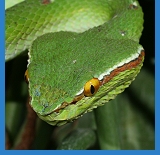
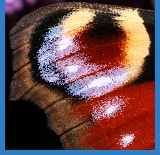
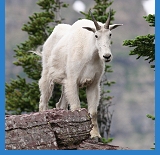
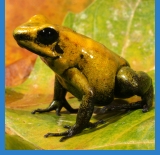
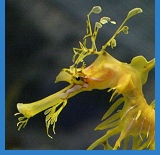
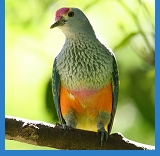

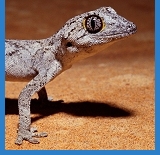
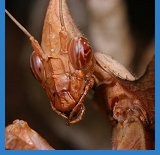
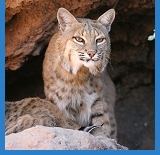
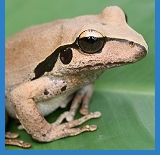
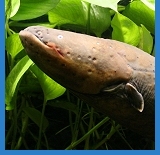
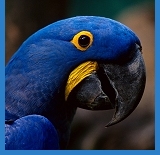

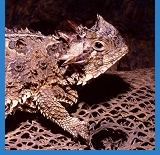
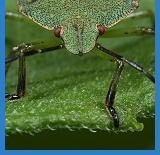
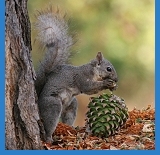
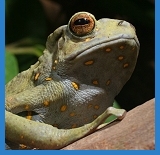
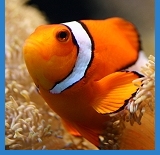
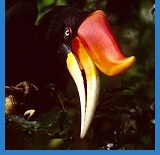

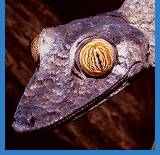
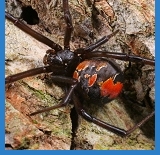
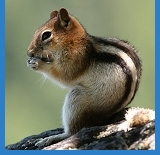
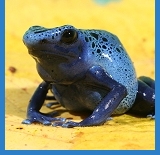
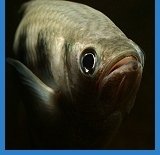
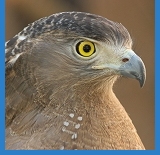

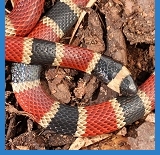
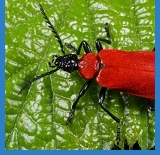
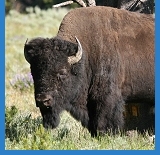
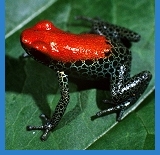
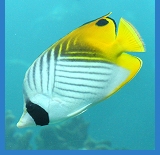
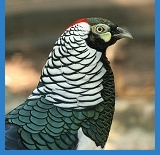

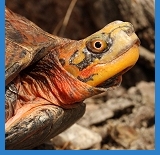
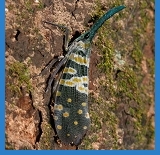
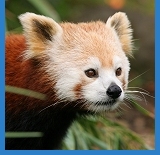
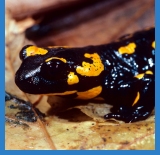

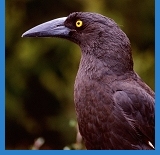

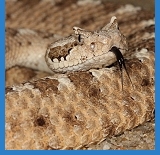
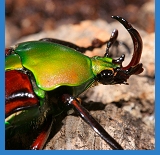
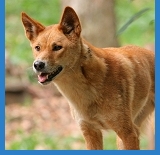
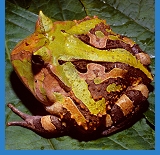
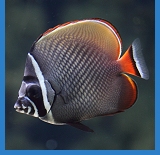
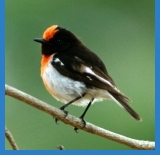

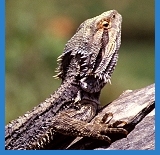
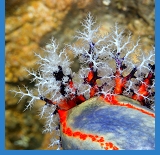
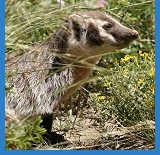
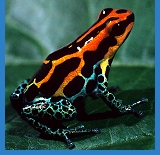
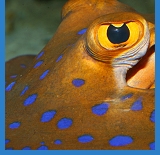
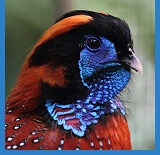

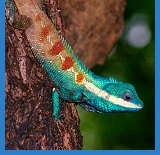
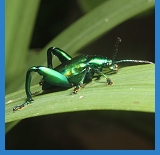
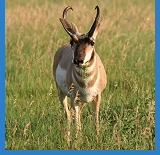
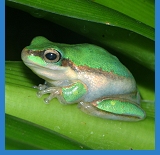
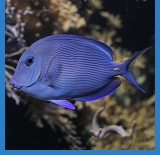
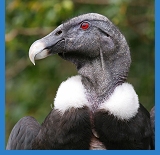

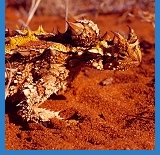
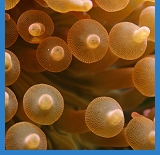
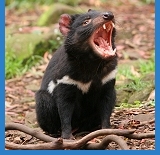
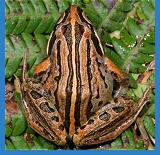
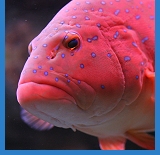
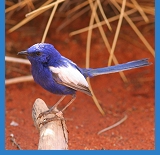

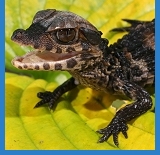
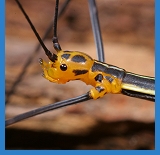
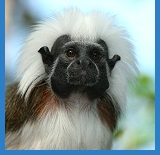
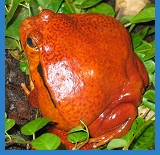
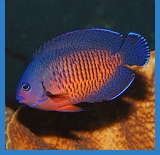
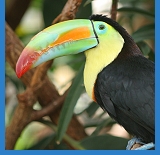

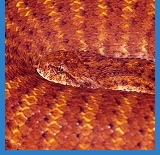
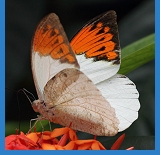
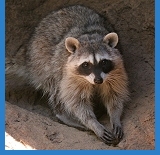
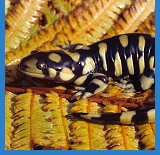
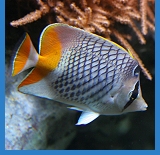
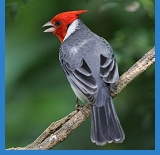

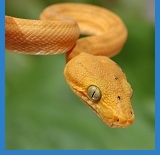
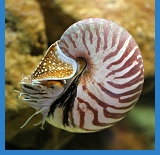
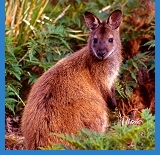
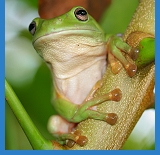
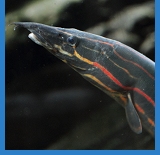
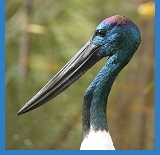

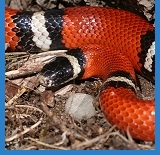
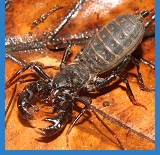
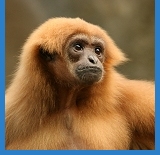
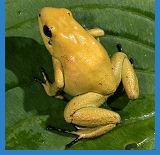
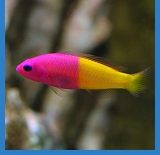
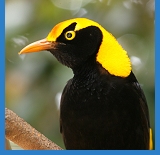

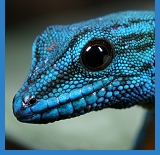
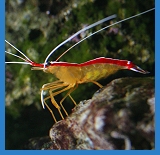
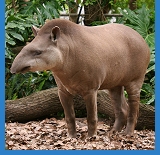
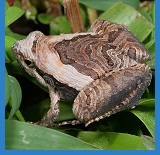
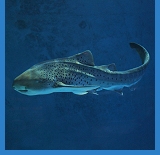
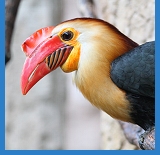

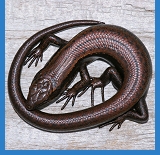
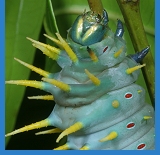
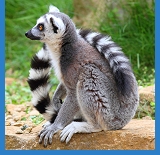
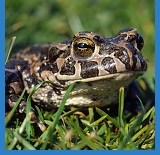
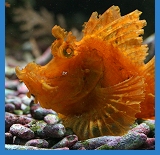
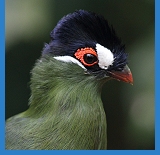

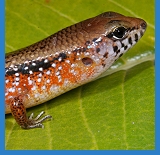
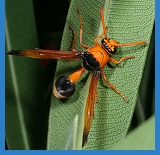
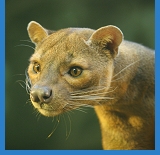
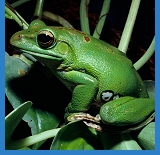
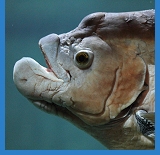
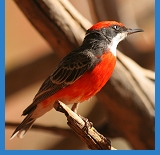

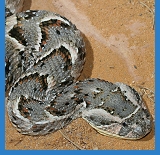
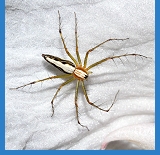
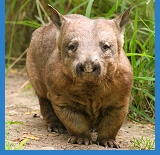
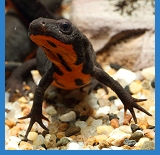
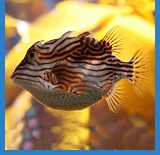


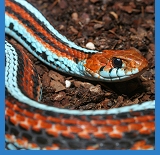
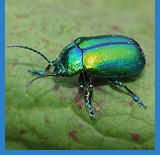
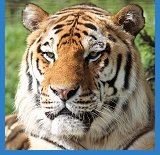
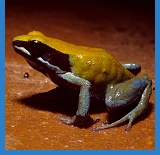
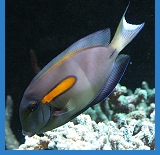
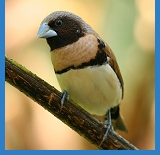

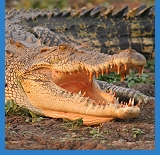
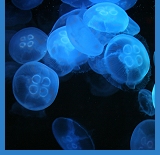
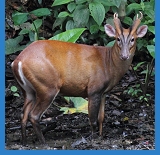
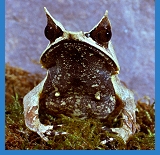
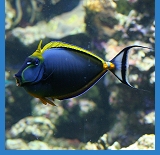
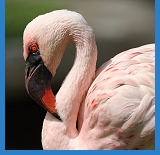

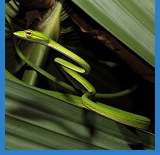
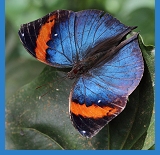
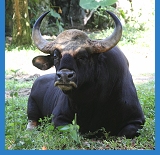
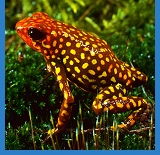
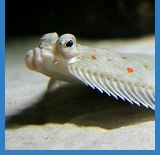
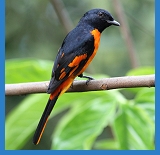

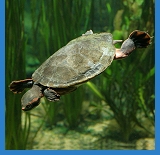
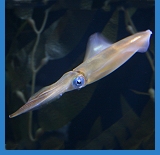
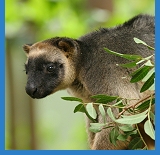
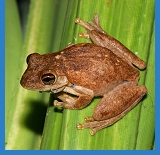
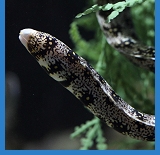
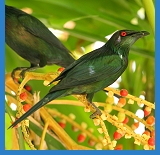

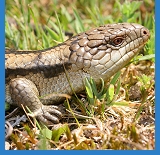
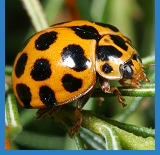
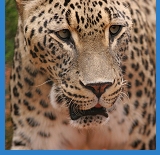
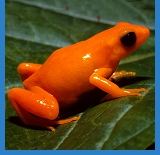
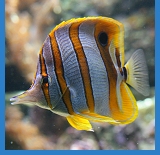
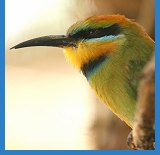

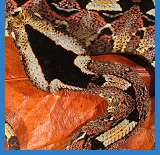
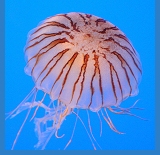
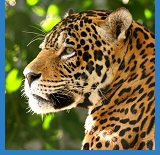
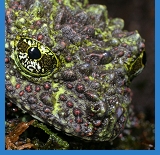
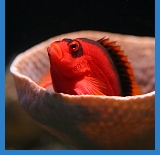
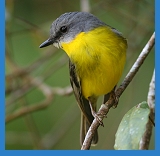

|

